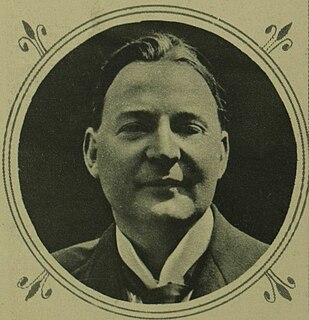
Charles Frederick Gurney Masterman PC was a British radical Liberal Party politician, intellectual and man of letters. He worked closely with such Liberal leaders as David Lloyd George and Winston Churchill in designing social welfare projects, including the National Insurance Act 1911. During the First World War he played a central role in the main government propaganda agency.
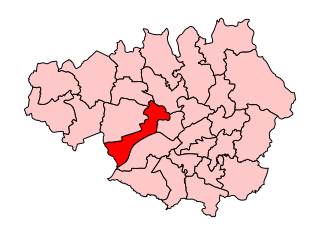
Eccles was a parliamentary constituency of the United Kingdom, centred on the town of Eccles in Greater Manchester, England. It returned one Member of Parliament (MP) to the House of Commons of the Parliament of the United Kingdom, elected by the first past the post system.
Hackney South was a parliamentary constituency in "The Metropolis". It was represented by nine Members of Parliament to the House of Commons of the Parliament of the United Kingdom, only two of whom, Horatio Bottomley and Herbert Morrison, were elected more than once.
Stretford was a parliamentary constituency in North West England, which returned one Member of Parliament (MP) to the House of Commons of the Parliament of the United Kingdom.

Alfred Henry Scott was a British Liberal politician.
This is an annotated list of notable records from United Kingdom general elections from 1945 onwards.

Edward George Hemmerde, KC was an English rower, barrister, politician, and Georgist.

Sir Thomas Robinson was an English industrialist, Liberal politician and Member of Parliament, who late in his career sat in the House of Commons as an Independent.

John Albert Bright was an English industrialist and Liberal Unionist and Liberal politician.
Lieutenant-Colonel Sir John Robert Pretyman Newman was an Irish-born British Army officer and Conservative politician.

Dr John Greenwood Shipman was an English barrister and Liberal Party politician.

Sir Alpheus Cleophas Morton was a British architect and surveyor, and a Liberal Party politician. He was active in local government in London from the 1880s until his death, and sat in the House of Commons in two periods between 1889 and 1918.
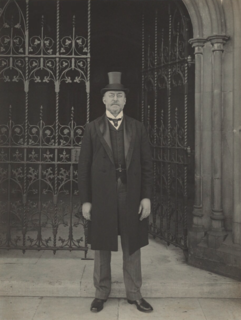
Colonel Francis Alfred Lucas was a British company director and Conservative Party politician who lived in London and in Suffolk. He sat in the House of Commons from 1900 until his defeat in 1906. He died whilst a prospective candidate in the 1918 election and he was replaced by his wife, Alice Theresa Lucas.
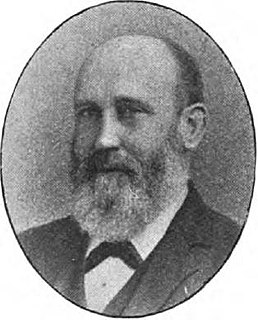
William Johnson was an English coal miner, trade unionist and Liberal-Labour (Lib-Lab) politician from Warwickshire. He sat in the House of Commons from 1906 to 1918.
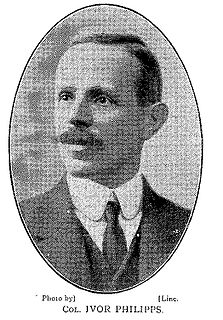
Sir Ivor Philipps, was a British officer in the British Indian Army and a Liberal Party politician. He held a seat in the House of Commons from 1906 to 1922.

Bertram Stuart Straus was a British businessman and Liberal Party politician.
The Manchester South by-election was a Parliamentary by-election. It returned one Member of Parliament (MP) to the House of Commons of the Parliament of the United Kingdom, elected by the first past the post voting system.
The 1917 South Monmouthshire by-election was a by-election held on Thursday 12 July 1917 for the British House of Commons constituency of the Southern Division of Monmouthshire in South Wales.

Lieutenant-Colonel Sir Alfred Cholmeley Earle Welby was a Conservative Party politician who served as the Member of Parliament (MP) for Taunton from 1895 until 1906. He had previously served in the British Army, rising to the rank of lieutenant-colonel in 1892. He stood unsuccessfully for the Conservatives in 1885, 1886 and 1892 prior to gaining his seat in Taunton. In 1906 he opted not to stand again in Taunton, but to contest the seat in East Finsbury, but was defeated. He was a London County Councillor from 1907 to 1910, and during the First World War, he was secretary of the Royal Patriotic Fund Corporation.













